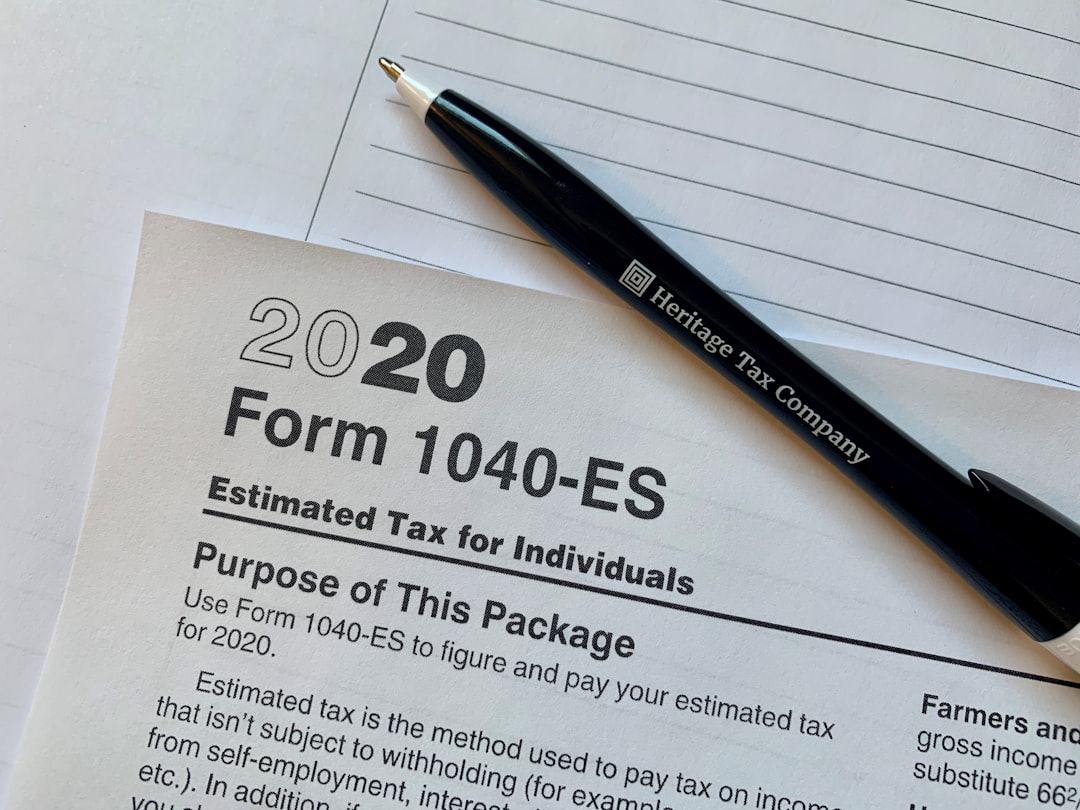As you navigate the complexities of personal finance and employment, the topic of payroll tax increases may come into focus. Payroll taxes are essential for funding various government programs, including Social Security and Medicare. However, when these taxes rise, they can have far-reaching implications for both employees and employers.
Understanding the nuances of payroll tax increases is crucial, as they can affect your financial landscape in significant ways. The decision to increase payroll taxes often stems from the need to bolster funding for vital social programs or to address budget deficits. While these measures may be necessary from a governmental perspective, they can create a ripple effect that impacts your take-home pay, job opportunities, and even the broader economy.
As you delve deeper into this topic, it becomes clear that the ramifications of payroll tax increases extend beyond mere numbers on a paycheck; they touch upon the very fabric of economic stability and personal financial health.
Key Takeaways
- Payroll tax increase will impact employee take-home pay
- Small business owners will face financial strain due to increased payroll taxes
- Hiring and employment may decrease as businesses adjust to higher payroll costs
- Social Security and Medicare funding will receive a boost from the payroll tax increase
- Potential economic slowdown due to reduced consumer spending from lower take-home pay
Impact on Employee Take-Home Pay
When payroll taxes increase, one of the most immediate effects you may notice is a reduction in your take-home pay.
The additional funds that would typically go into your pocket are redirected to government programs, which can lead to a feeling of financial strain.
You might find yourself reevaluating your spending habits or cutting back on discretionary expenses to accommodate this change. Moreover, the impact on take-home pay can vary significantly depending on your income level. For higher earners, the increase may feel less burdensome compared to low- and middle-income workers who rely heavily on every dollar they earn.
This disparity can create a sense of inequity among employees, as those who are already struggling may find it increasingly difficult to make ends meet. As you consider your financial situation, it’s essential to recognize how these changes can affect not just your immediate budget but also your long-term financial goals.
Effect on Small Business Owners

If you are a small business owner, a payroll tax increase can pose unique challenges that may affect your operations and profitability. As you manage your workforce, the additional tax burden can lead to difficult decisions regarding employee compensation and benefits. You might find yourself weighing the pros and cons of raising prices to offset increased costs or potentially reducing staff hours to maintain your bottom line.
Furthermore, small businesses often operate with tighter margins than larger corporations, making them more vulnerable to fluctuations in payroll taxes. The increased financial strain may lead you to reconsider hiring new employees or investing in growth opportunities. This cautious approach can stifle innovation and limit job creation within your community, ultimately affecting the local economy.
As you navigate these challenges, it’s crucial to explore strategies that can help mitigate the impact of payroll tax increases on your business.
Changes in Hiring and Employment
| Year | New Hires | Unemployment Rate |
|---|---|---|
| 2018 | 2,500,000 | 4.0% |
| 2019 | 2,700,000 | 3.5% |
| 2020 | 1,800,000 | 8.0% |
| 2021 | 2,300,000 | 5.5% |
The implications of payroll tax increases extend beyond individual finances; they can also reshape the hiring landscape. As you consider expanding your team or bringing on new talent, the added cost of payroll taxes may lead you to adopt a more conservative approach. You might delay hiring decisions or opt for part-time employees instead of full-time staff to manage costs effectively.
This shift in hiring practices can have broader consequences for the job market. With fewer positions available, competition for jobs may intensify, making it more challenging for job seekers to find suitable employment. Additionally, existing employees may feel insecure about their positions as businesses tighten their belts in response to increased tax burdens.
As you navigate this evolving employment landscape, it’s essential to remain adaptable and proactive in seeking opportunities that align with your skills and career goals.
Impact on Social Security and Medicare Funding
One of the primary purposes of payroll taxes is to fund essential social programs like Social Security and Medicare. As you contribute to these programs through payroll deductions, you are essentially investing in your future security and healthcare needs. However, when payroll taxes increase, it raises questions about the sustainability and effectiveness of these programs.
Increased funding can help ensure that Social Security and Medicare remain viable for future generations, but it also highlights the ongoing debate about how best to manage these programs. You may find yourself contemplating the balance between contributing more now for potential benefits later versus the immediate impact on your disposable income. Understanding this dynamic is crucial as you plan for retirement and consider how changes in funding may affect your long-term financial security.
Potential Economic Slowdown

The broader economic implications of payroll tax increases cannot be overlooked. As you adjust to changes in your take-home pay and businesses grapple with increased costs, consumer spending may decline. This reduction in spending can lead to a slowdown in economic growth, as businesses experience decreased demand for their products and services.
You might notice this slowdown manifesting in various ways—fewer job opportunities, stagnant wages, or even layoffs in extreme cases. The interconnectedness of the economy means that when one sector suffers, others often follow suit. As you navigate this landscape, it’s essential to stay informed about economic trends and consider how they may impact your financial decisions moving forward.
Challenges for Low-Income Workers
For low-income workers, payroll tax increases can present particularly daunting challenges. As you strive to make ends meet on a limited budget, any reduction in take-home pay can feel like a significant setback. The burden of increased taxes may force you to make difficult choices about essential expenses such as housing, food, and healthcare.
Moreover, low-income workers often lack access to resources that could help them navigate these challenges effectively.
This lack of support can exacerbate feelings of financial insecurity and limit opportunities for upward mobility.
As you confront these challenges, it’s vital to explore community resources and support networks that can provide assistance during difficult periods.
Impact on Retirement Savings
As you plan for retirement, understanding how payroll tax increases affect your savings strategy is crucial. With less disposable income due to higher taxes, you may find it challenging to contribute adequately to retirement accounts such as 401(k)s or IRAs. This situation can hinder your ability to build a secure financial future and achieve your retirement goals.
Additionally, if you are already nearing retirement age, the implications of reduced savings become even more pronounced. You might worry about whether you will have enough funds to maintain your desired lifestyle once you stop working. It’s essential to reassess your retirement strategy in light of these changes and consider alternative savings options or investment strategies that could help bolster your financial security as you approach this significant life transition.
Implications for Self-Employed Individuals
If you are self-employed, payroll tax increases can have unique implications for your business model and personal finances. Unlike traditional employees who have taxes withheld from their paychecks, self-employed individuals are responsible for calculating and paying their own taxes. An increase in payroll taxes means that you will need to allocate more funds toward tax obligations, which could impact your overall profitability.
This added burden may lead you to reconsider pricing strategies or service offerings as you strive to maintain a sustainable business model. You might also find yourself exploring ways to reduce expenses or increase revenue streams to offset the impact of higher taxes. As a self-employed individual navigating these changes, it’s essential to stay informed about tax regulations and seek professional advice when necessary to ensure compliance while maximizing your financial health.
Political and Social Reactions
The topic of payroll tax increases often elicits strong reactions from both political leaders and the general public. As discussions unfold around the necessity of such measures, you may find yourself engaging in conversations about fiscal responsibility and social equity. Different political factions may advocate for varying approaches to taxation and government spending, leading to heated debates about the best path forward.
Public sentiment regarding payroll tax increases can also vary widely based on individual circumstances and beliefs about government intervention in the economy. You might encounter differing opinions on whether increased funding for social programs justifies the burden placed on taxpayers or if alternative solutions should be explored instead. Engaging with these discussions can provide valuable insights into the complexities of fiscal policy and its impact on society as a whole.
Strategies for Managing Payroll Tax Increase
As you face the reality of payroll tax increases, developing effective strategies for managing their impact is essential. One approach is to reassess your budget and identify areas where you can cut back on discretionary spending without sacrificing essential needs. By prioritizing your expenses and making informed choices about where to allocate your resources, you can mitigate some of the financial strain caused by higher taxes.
Additionally, exploring opportunities for increasing your income—whether through side gigs or professional development—can help offset the effects of reduced take-home pay. Investing in skills that enhance your employability or seeking out additional sources of revenue can provide a buffer against economic fluctuations caused by payroll tax increases. As you navigate this landscape, staying proactive and adaptable will be key to maintaining financial stability in an ever-changing environment.
In conclusion, understanding the multifaceted implications of payroll tax increases is crucial for both employees and employers alike. By recognizing how these changes affect take-home pay, hiring practices, social program funding, and overall economic health, you can better prepare yourself for navigating this complex landscape while making informed financial decisions that align with your goals.
A recent article discusses the potential consequences of payroll tax increases on both employees and employers, highlighting how such changes can impact disposable income and overall economic growth. For more insights on this topic, you can read the full article [here](https://www.howwealthgrows.com/).
WATCH THIS! The Retirement Lie: Why Gen Z Will Pay for Boomers’ Golden Years
FAQs
What is a payroll tax increase?
A payroll tax increase refers to an increase in the amount of tax that employers and employees are required to pay towards social security and medicare.
What are the consequences of a payroll tax increase?
Consequences of a payroll tax increase may include reduced take-home pay for employees, increased labor costs for employers, and potential impact on consumer spending and economic growth.
How does a payroll tax increase affect employees?
A payroll tax increase can result in a reduction in employees’ take-home pay as they are required to contribute a higher percentage of their income towards social security and medicare.
How does a payroll tax increase affect employers?
Employers may experience increased labor costs as they are required to match the higher payroll tax contributions made by their employees. This can impact their bottom line and potentially lead to reduced hiring or layoffs.
What is the purpose of a payroll tax increase?
The purpose of a payroll tax increase is to ensure the long-term sustainability of social security and medicare programs by increasing the funds available to support these programs.
Are there any potential benefits of a payroll tax increase?
While a payroll tax increase may have negative consequences, it can also help to ensure the financial stability of social security and medicare programs, which are important for providing support to retirees and those with disabilities.
